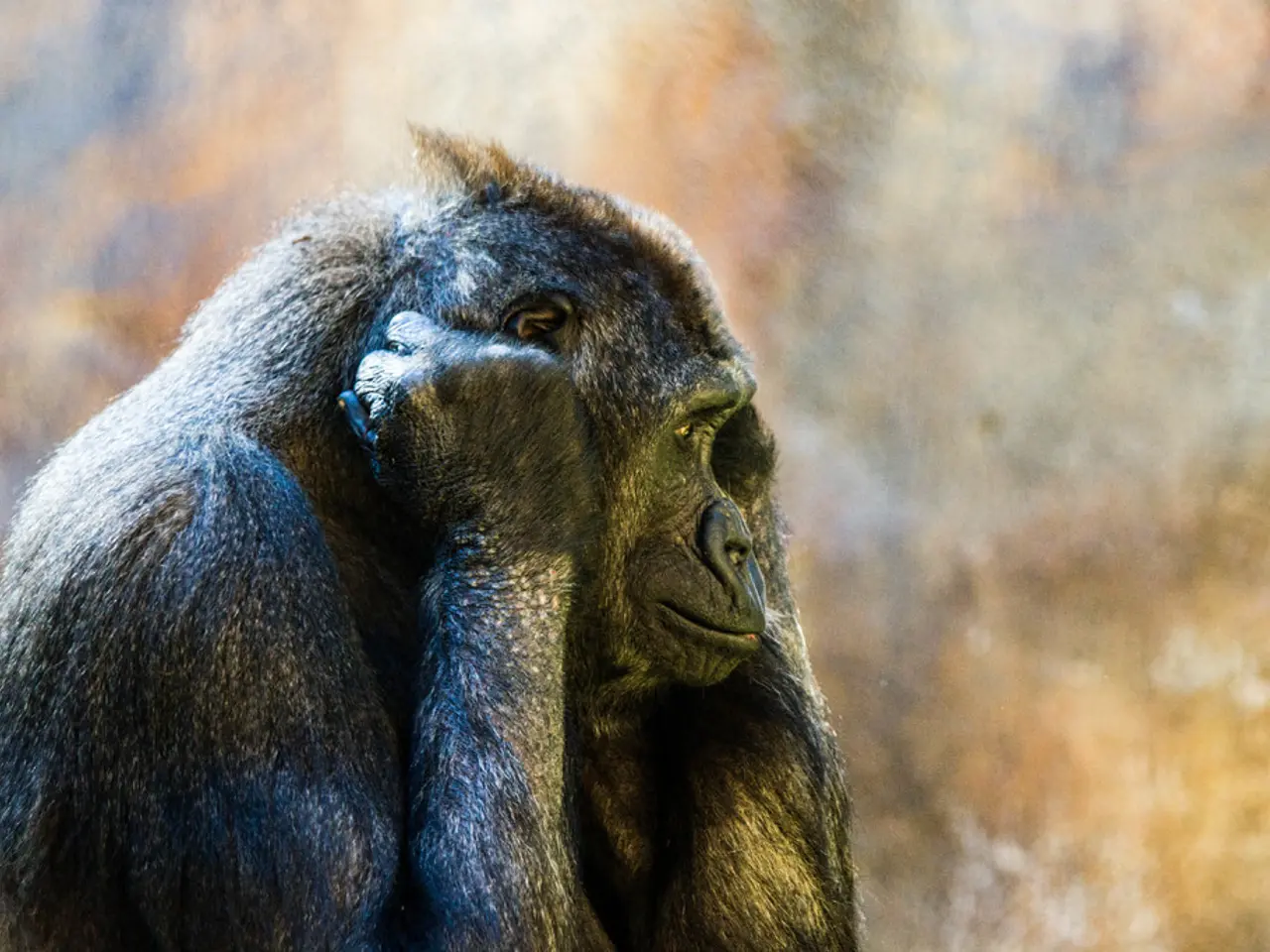Primates, notably chimps, consume an amount of alcohol equating to over two standard drinks daily
In a fascinating turn of events, researchers have discovered that chimpanzees, our closest living relatives, exhibit a unique behavior when it comes to their diet: binge eating of alcohol-rich fruits.
A study published in Science Advances has shed light on this intriguing behavior, suggesting that chimpanzees may purposefully seek out fruits with high alcohol content. The study, which analysed over 500 fruits found beneath trees where chimpanzees had recently fed, revealed that the most popular fruits among these primates often contained high levels of alcohol.
Interestingly, the study found that chimpanzees in a specific population, located in Uganda and the Ivory Coast, consumed the most popular fruits with the highest alcohol content. Researchers from the University of California, Berkeley noted that these chimpanzees intentionally eat fermented fruits containing an average of about 0.3% ethanol.
This binge eating behavior is considered normal and natural by scientists. The study authors did not directly consider how many fruits the chimpanzees ate, just how much time they spent eating different types. However, an estimate suggests that chimpanzees consume the equivalent of 2.5 human drinks per day on average.
The alcohol content in fruits may signal high sugar levels and available nutrients to chimpanzees. This could be a key factor in their preference for these fruits. The plentiful presence of food reduces social tensions, which may allow bonds to be tested and strengthened among chimpanzees, particularly after they have eaten large quantities of food like figs.
This new discovery may also shed light on the possible role of alcohol in the aftermath of some large gatherings of chimpanzees in Kibale National Park. However, it's important to note that the alcohol levels found in the fruits consumed by chimpanzees are significantly lower than those found in the fermented palm sap consumed by chimpanzees in Guinea.
In an unusual situation, chimpanzees in Guinea were observed behaving oddly after consuming the fermented palm sap. However, it is considered an unusual situation, and chimpanzees are unlikely to get drunk on fruit.
Researchers are now planning to measure more directly how much alcohol chimpanzees have actually consumed, using urine samples. This could provide further insights into the role of alcohol in the diet and social behaviour of these fascinating creatures.
The findings from this study may challenge our understanding of the role of alcohol in hominoid societies, suggesting that the sharing and dietary incorporation of ethanol-containing foods may have played a long-standing role in these societies. Further research is necessary to fully understand the implications of these findings.
Read also:
- Inherent Skills Know No Bounds, Yet Access to Employment Remains Unequal: Suggestions for a More Equitable Job Market of the Future
- Affordable supermarket purchases from dollar stores are not sabotaging typical American nutritional habits, according to research findings
- Impact of Chronic Stress on Cognitive Function and Brain Integrity Over Time
- Cross-Border Wind Farm in Asia Generates 600 MW of Power through Monsoon Wind








